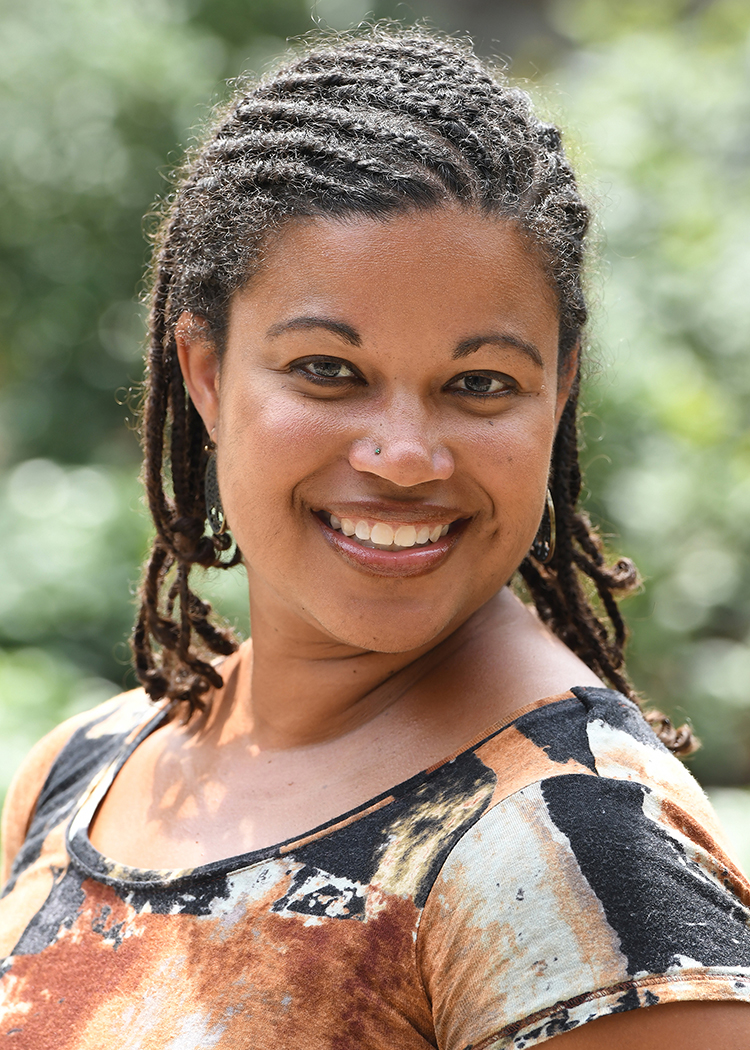Professor studies the unique harm of cultural betrayal

When she was a teenager, Jennifer M. Gómez, Ph.D., vowed to herself that if she lived long enough, she would be an adult who addressed childhood violence.
“Interpersonal violence, including child sexual abuse, bullying, domestic violence, and rape, happen to and around kids, at points in their lives that are fundamental to shaping who they are, who they will become, and what they believe the world to be,” Gómez said, a trauma psychologist and assistant professor in the Department of Psychology and the Merrill Palmer Skillman Institute for Child & Family Development (MPSI). “On a societal level, the protection of children and adolescents is lacking, as evidenced by the U.S.' refusal to ratify the United Nations Convention on the Rights of the Child (UNCRC).” The U.S. is the only member state of the United Nations that has not ratified the treaty.
Now, Gómez is fulfilling that childhood promise by teaching students in the classroom about interpersonal violence and trauma and conducting research as the principal investigator in the HOPE Lab at MPSI.
The lab conducts research within the framework of Gómez’ cultural betrayal trauma theory (CBTT), in which she proposes that the outcomes of within-group violence is compounded by inequality in many ways.
“I propose that some minorities develop (intra)cultural trust with each other—love, loyalty, connection, responsibility, attachment, solidarity—to guard against societal trauma, such as racism,” she said. “When violence happens within-group, it is a cultural betrayal, as it violates this (intra)cultural trust.”
Gómez evidences this in The Conversation via an article titled: “The unique harm of sexual abuse in the Black community.” She uses R. Kelly’s alleged sexual abuse of Black girls to illustrate how abuse perpetuated within the Black community is different than that of other alleged white perpetrators, such as Woody Allen. The fallout of cultural betrayal trauma spans beyond outcomes that are typically associated with trauma, such as post-traumatic stress disorder and suicidality, to include things like internalized prejudice. The article gives the example of “a Black person believing the stereotype that all Black people are violent.” It can also result in (intra)cultural pressure, meaning victims are often pressured by their community to keep quiet about abuse to protect the group as a whole against societal trauma, despite the lasting implications it has on the victim’s well-being.
By taking societal inequality into count when conducting research on trauma, Gómez aims to “identify avenues of hope and healing” for minorities and their communities.
From the stage to academia
With more than 60 peer-reviewed journal articles, book chapters, scholarly writings, and pieces for the general public published, it may be hard to believe that Gómez didn’t always have her sights set on academia.
Her career started on stage in New York City as a professional ballet dancer with the Dance Theatre of Harlem (DTH).
Born in Southern California, Gómez took up ballet at a young age and primarily practiced the Vaganova method, a style that illustrated femininity as soft and fragile. Damsels often found themselves in distress, Prince Charmings made regular appearances, and the dancers were overwhelmingly white.
When she watched DTH perform for the first time at the age of 15, it was like discovering a whole new world.

“DTH showed a different kind of femininity—one that was powerful, strong, nuanced, theatrical, commanding, and sensitive,” Gómez
said. “And you could simultaneously be Black, which DTH showed me was beautiful.”
It was a world she wanted to be a part of. So, at the age of 17, she packed her bags and moved to NYC. For five years, she was a professional ballet dancer with DTH.
As retirement approached, she took intro courses in English and psychology at the City College of New York where she fell in love with the science of the mind and the power of the written word. Gómez went on to study trauma theory, earned a bachelor of arts at San Diego State University, a master of science and Ph.D. at the University of Oregon, all in psychology. In 2017, she arrived at Wayne State University as a postdoctoral scholar in the university’s Postdoctoral to Faculty Transition program.
Now a professor and principal investigator, Gómez approaches these duties much like how she approaches her research.
“Not incongruent with our research, our roles as teachers, advisors, and mentors are among the most important jobs we have as professors,” she said. “The longevity and quality of our fields demands that we recruit, retain, train, and educate the next generation of scholars in ways in which abuse, exploitation, degradation, and discrimination are wholly absent. … The future of academia depends on it.”
To read more about Gómez and CBTT, visit her website: jmgomez.org.